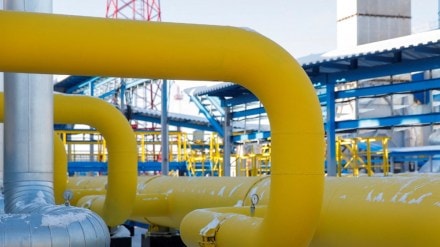The Petroleum and Natural Gas Regulatory Board (PNGRB) has directed city gas distribution (CGD) entities to charge a uniform rate for piped natural gas (PNG) supplied to all domestic households, regardless of their daily consumption levels. The move is aimed at preventing CGD companies from applying higher rates when consumption crosses predefined thresholds.
Tiered pricing
Currently, Administered Price Mechanism (APM) gas is allocated to CGD entities to meet domestic PNG and CNG (transport) demand. This gas is provided at concessional rates compared to market or spot LNG prices to promote wider adoption of natural gas in households and the transport sector, with the expectation that CGD companies will pass on the cost advantage to consumers.
“It has come to the board’s notice that certain CGD entities are implementing a telescopic pricing structure for PNG (D) consumers, wherein the per SCM (standard cubic meter) price of natural gas escalates as consumption surpasses a predefined threshold,” the regulator stated in a notice.
The board stated that such pricing structures could enable unauthorised use of subsidised APM gas by commercial consumers who may be misclassified as domestic users.
The regulator, however, did not name any CGD company involved.
“Additionally, genuine domestic consumers with higher consumption levels may be unfairly subjected to elevated charges, despite natural gas being supplied to CGD entities at a uniform APM rate,” it further added in its notice.
Push for equity and recent reforms
The regulator said that to uphold the principles of equity and transparency, CGD entities are advised to undertake a thorough review of consumption patterns and investigate anomalous cases where domestic consumers exhibit significantly higher usage relative to industry average.
“Based on the findings, suitable corrective measures be instituted as per the regulations on the subject. PNG (D) should be supplied at a uniform rate to all domestic household consumers, irrespective of their daily consumption levels,” the board said.
This directive comes shortly after PNGRB implemented another major reform: the simplification of pipeline tariffs, which is expected to reduce transportation costs for CGD companies and potentially boost their margins.
Under the newly amended Natural Gas Pipeline Tariff Regulations 2025, the number of unified tariff zones has been reduced from three to two. The amendments aim to streamline the tariff structure, promote the use of cleaner fuels, and support the development of an inclusive gas-based economy, the Board said.
Experts say that the streamlined tariff set would mean that consumers would actually benefit, and costs are likely to decrease, and this is aimed at enhancing gas consumption and striving towards the goal of gas in energy mix to reach 15% by 2030.
